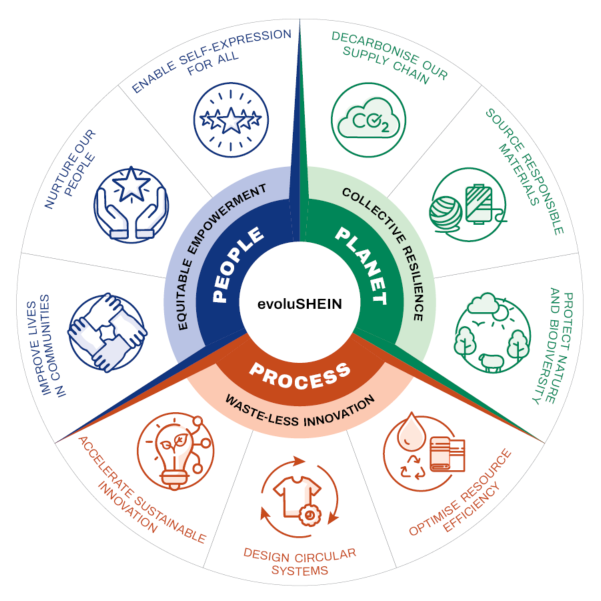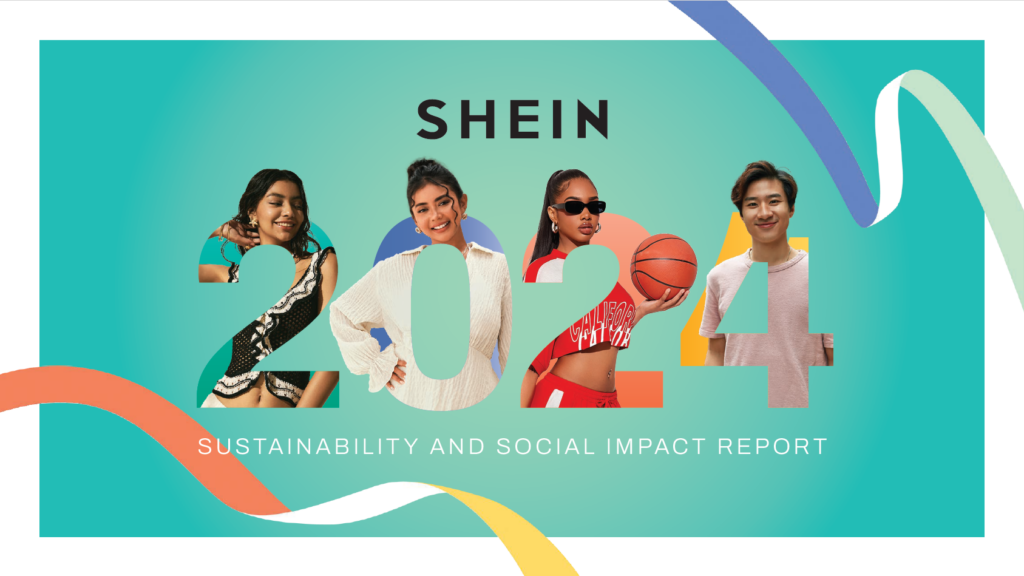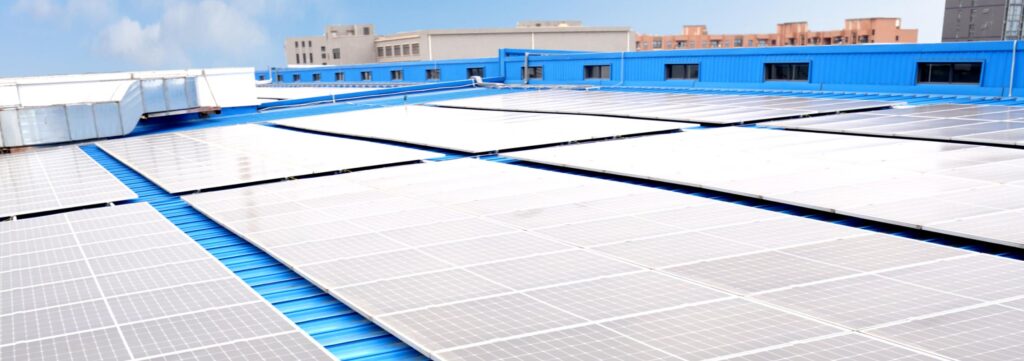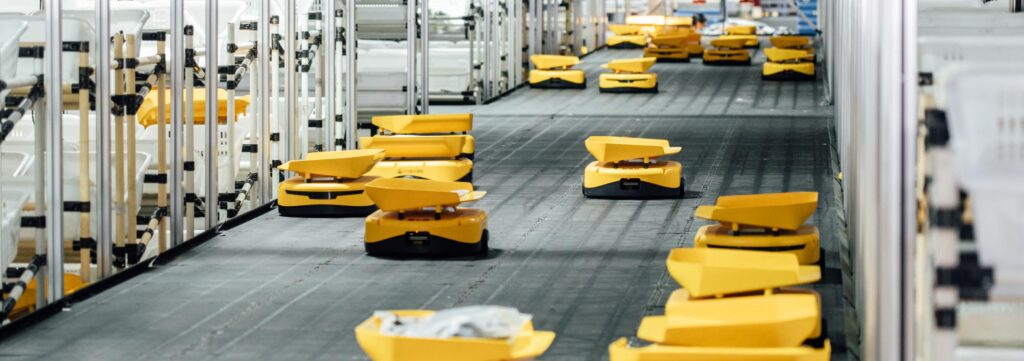Our Goal for the Future: Reduce our Impact
We are working hard to drive continued progress toward our sustainability and social commitments, and increase transparency as we recognize the role SHEIN can play in supporting the communities we reach and the environment we all share.
“Everyone deserves a more equitable and sustainable future. And I am confident that SHEIN can become a catalyst for that transition.”
Sky Xu, Co-Founder and CEO of SHEIN
OUR evoluSHEIN ROADMAP
SHEIN’s evoluSHEIN roadmap details three pillars that represent our comprehensive strategy for driving our mission to provide inclusive and affordable fashion for all, regardless of culture, gender, age, body type, ability, or economic status. The three strategic pillars are Equitable Empowerment (People), Collective Resilience (Planet), and Waste-Less Innovation (Process).


Sustainability and Social Impact Report
Details about our sustainability and social impact commitments, our progress to date, and the initiatives we have in place to help us meet our goals are available in SHEIN’s latest Sustainability and Social Impact Report

Our Memberships and Collaborations
We recognise the importance of collaboration with stakeholders throughout the industry to address the systemic and multifaceted challenges in our industry.

People
Equitable Empowerment
People are at the center of everything we do. Wherever our business has an impact, we strive to empower our customers, employees, brand partners, suppliers and members of the larger global community to achieve their full potential.
We have set aspirations that empower these stakeholders to hold us accountable to be a:
- Preferred brand for customer self-expression.
- Top-ranked employer for employee talent.
- Preferred brand partner for creative talent collaborations.
- Preferred responsible purchasing partner for suppliers.
- Responsible corporate citizen that improves lives in the communities we reach.
2024
Highlights
4,288
on-site SHEIN Responsible Sourcing
audits conducted on suppliers and subcontractors, including on contract manufacturers* representing ~95% of SHEIN-branded products by procurement value.
>133,000
training hours delivered to support SHEIN employees’ professional development, with an average of eight training hours per employee.
>5,300
SHEIN X artists and designers onboarded as of end-2024, >US$12 million paid out in commissions since 2021.
203
supplier factories upgraded in line with our model factory standards since 2023, across more than 500,000 square metres.
644
families of suppliers’ workers supported through the SHEIN Spotlight programme since 2021, with financial assistance totalling approximately US$648,000.
>US$6.4M
donated under SHEIN Cares to support local organisations driving positive community impact. .
*Contract manufacturers are defined as Tier 1 suppliers of finished SHEIN-branded products holding direct procurement contracts with SHEIN entities. Procurement value refers to the monetary amount of finished SHEIN-branded products that SHEIN purchases directly from contract manufacturers. While SHEIN purchases finished SHEIN-branded products directly from contract manufacturers, contract manufacturers may outsource certain production of finished SHEIN-branded products to subcontractors, with prior written consent from SHEIN. SHEIN’s Supplier Code of Conduct prohibits suppliers from subcontracting without prior written consent from SHEIN.

Planet
COLLECTIVE RESILIENCE
Like many companies, we face the complex challenge of decoupling our growth from resource consumption. We believe in investing in strategies that address climate change and build collective resilience across our operations and supply chains, to ensure that we can future proof our business and thrive in an increasingly dynamic environment.
Our operational teams and supply chain partners are working to reduce the environmental footprint of our products and facilities, guided by ambitious goals:
- Reduce absolute Scope 1 and 2 GHG emissions by 42% by 2030.
- Reduce absolute Scope 3 GHG emissions by 25% by 2030.
- Reach net-zero GHG emissions across the value chain by 2050.
- Use electricity only from renewable sources for operations directly managed by SHEIN by 2030.
- Source 100% forest-safe viscose* and paper-based packaging** for SHEIN-branded products by 2025.
- Ensure all packaging sourced for SHEIN-branded products contains 50% preferred materials by 2030.
- Transition 31% of the polyester used for SHEIN-branded products to recycled polyester by 2030.
- Source 50% of SHEIN-branded products through our evoluSHEIN by Design initiative by 2030.
The Science Based Targets initiative (SBTi) has validated our net-zero science-based target by 2050 and approved our near and long-term science-based emissions reduction targets. SHEIN’s emissions reduction targets are from a 2023 base year. We acknowledge that most of our emissions lie in Scope 3, and that we still have much work to do and are committed to driving progress, aligned to the company’s growth and expansion. In 2024, we partnered with sustainability consultant Anthesis Group to develop a decarbonisation roadmap to guide our progress toward meeting our near- and long-term emissions reduction targets
*SHEIN currently sources forest-safe viscose from producers awarded a ‘Green Shirt’ rating in Canopy’s Hot Button Report, indicating low risk of sourcing from Ancient and Endangered Forests (for more information on Ancient and Endangered Forests, please refer to Canopy’s Forest Mapper).
**SHEIN currently sources FSC-certified paper-based packaging for forest-safe paper-based packaging.
More information about our carbon emissions and our initiatives to reduce our emissions across the supply chain are available in our latest sustainability and social impact report and the “Decarbonise our Supply Chain” section of our website.
Priorities
2024
Highlights
Implemented decarbonisation initiatives resulting in
16,582
metric tonnes of CO2e estimated Scope 1 and 2 emissions reductions and
867,721
metric tonnes of CO2e in estimated Scope 3 emissions reductions.
72.5%
of viscose fabrics directly sourced for SHEIN-branded products were from producers with a ‘Green Shirt’ rating by Canopy.
17%
of packaging procured for SHEIN-branded products contained at least 50% GRS-certified recycled polyethylene (PE) or forest-safe paper.
8.3%
of SHEIN-branded products made with textiles designated by SHEIN were produced in line with our evoluSHEIN Standard.
76%
of electricity purchased for SHEIN’s own operations was derived from renewable sources.

Process
Waste-less Innovation
SHEIN believes that innovative solutions will be needed to address the systemic challenges of the fashion industry, with collaboration across the ecosystem involving all parts of the value chain, from suppliers to customers. We are committed to helping drive this industry-wide transition by supporting advancements in materials innovation, production planning, end-of-life management, and increasing customer engagement to promote circularity.
Our targets and aspirations are to:
- Engage the majority of SHEIN’s customers in circularity by 2025
- Become a global leader in rescuing deadstock materials from becoming waste
- Establish a fully circular textile supply chain by 2050 in alignment with our World Circular Textiles Day commitment
2024
Highlights
~51%
of directly sourced printed fabrics produced using digital thermal transfer printing and Cool Transfer Denim Printing, saving 550,000 cubic metres of water.
6.78 million
new users registered on SHEIN Exchange across France, Germany, the UK, and the USA, with over 297,000 pre-loved items listed.
~40%
year-over-year increase in amount of high-quality deadstock materials rescued through partnership with Aloqia (formerly Queen of Raw), to 28,058 metres.
40 tonnes
of fabric recovered within SHEIN-operated facilities, with 30 tonnes of cutting waste sent to fibre manufacturers to be recycled into fabric.
>60
new sewing and garment-making tools for suppliers developed by SHEIN’s Centre of Innovation for Garment Manufacturing (CIGM), resulting in average productivity gains of >40%.
12.1%
of recycled polyester directly sourced for SHEIN-branded products was textile-to-textile recycled polyester.









